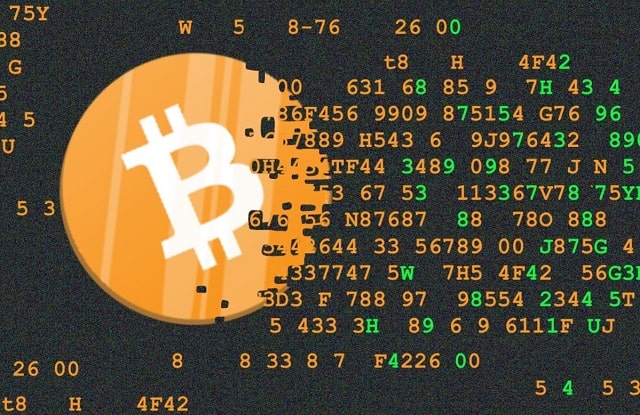
The world of cryptocurrencies, particularly Bitcoin, has seen phenomenal growth and adoption over the past decade. With this rise in popularity, security has become a paramount concern. Bitcoin operates on a decentralized network, where transactions are validated and recorded by a distributed network of nodes. However, ensuring the authenticity and confidentiality of these transactions is a complex challenge. In this article, we will delve deep into the concepts of peer authentication and encryption in the Bitcoin network, with a particular focus on Bitcoin Improvement Proposals (BIP) 150 and 151, and how they contribute to enhancing the security of the Bitcoin network.
Understanding Peer Authentication
The Basics Of Peer Authentication In The Bitcoin Network
Peer authentication is a critical aspect of securing the Bitcoin network. In a decentralized system, anyone can participate, and verifying the identity of participants becomes essential. Traditional centralized systems rely on a central authority for authentication, but Bitcoin must rely on cryptographic methods to ensure trust.
Vulnerabilities And Risks Associated With Unauthenticated Peers
Without proper authentication, the Bitcoin network is vulnerable to a range of attacks, including Sybil attacks, where an attacker creates multiple fake nodes to manipulate the network. Additionally, unauthenticated peers can expose users to the risk of accepting fraudulent transactions.
Introduction To Bitcoin Improvement Proposal 150 (BIP 150)
To address these issues, BIP 150 was introduced as a solution. BIPs are formal design documents that propose changes and improvements to the Bitcoin protocol. BIP 150, titled "Peer Authentication", aims to provide a secure method for nodes to authenticate their peers.
Bitcoin Improvement Proposal 150 (BIP 150)
Detailed Explanation of BIP 150 and Its Objectives BIP 150 outlines a process called "mutual authentication" for Bitcoin peers. This process ensures that both parties, the initiator and the responder, verify each other's identity using digital signatures. This eliminates the risk of connecting to unauthenticated or malicious nodes.
Implementation And Integration Of BIP 150 In The Bitcoin Network
BIP 150 is not mandatory for all nodes, but its adoption is encouraged. Nodes supporting BIP 150 communicate their willingness to use this feature during the initial handshake. If both peers support BIP 150, they proceed with the mutual authentication process.
Benefits And Improvements In Peer Authentication With BIP 150
The adoption of BIP 150 has significantly improved the security of the Bitcoin network. It mitigates the risk of connecting to rogue nodes and ensures that only authenticated peers can participate in the network.
Real-World Examples And Case Studies Highlighting The Impact Of BIP 150
Several incidents before the introduction of BIP 150 demonstrated the need for improved peer authentication. Real-world cases, such as the 2013 blockchain fork caused by a rogue node, underscore the importance of BIP 150's contributions to network security.
Ensuring Confidentiality With Encryption
The Importance Of Encrypting Communication Between Bitcoin Peers
While peer authentication addresses one aspect of security, protecting the confidentiality of transactions and communication between nodes is equally vital. Encryption plays a pivotal role in achieving this goal.
Introduction To Bitcoin Improvement Proposal 151 (BIP 151)
BIP 151, titled "Peer-to-Peer Communication Encryption", focuses on encrypting data exchanged between Bitcoin nodes. This ensures that even if a malicious actor intercepts the data, they cannot decipher its contents.
How BIP 151 Enhances Privacy And Confidentiality In Bitcoin Transactions
BIP 151 uses industry-standard cryptographic techniques to establish secure channels between nodes. This encryption guarantees the privacy of transactions, preventing eavesdropping and tampering.
Potential Challenges And Criticisms Of BIP 151
While encryption is a critical security feature, some critics argue that it may inadvertently create obstacles for network analysis and monitoring, which could have potential implications for regulatory compliance.
Bitcoin Improvement Proposal 151 (BIP 151)
In-Depth Exploration Of BIP 151 And Its Technical Details
BIP 151 employs cryptographic primitives such as Elliptic Curve Diffie-Hellman (ECDH) for key exchange and ChaCha20-Poly1305 for data encryption. These techniques ensure the confidentiality and integrity of the communication.
The Cryptographic Techniques Employed In BIP 151
We delve deeper into the cryptographic methods used in BIP 151, explaining how they work together to establish secure communication channels between peers.
Practical Implications And Use Cases For Encrypted Communication
BIP 151 has practical implications beyond Bitcoin's security. It can serve as a model for secure communication in other decentralized networks and applications.
Potential Challenges And Criticisms Of BIP 151
We examine potential challenges and criticisms associated with BIP 151, including concerns about the computational overhead of encryption and its impact on network performance.
The Road Ahead: Future Developments
Ongoing Research And Improvements In Peer Authentication And Encryption
The world of cryptocurrencies is constantly evolving. Ongoing research and development efforts are likely to lead to further enhancements in peer authentication and encryption.
Collaboration Within The Bitcoin Community For Enhanced Security
Collaboration within the Bitcoin community is crucial for addressing emerging security threats and ensuring the network's long-term stability.
Anticipating Challenges And Threats In The Ever-Evolving Landscape
As Bitcoin continues to grow and evolve, it is essential to remain vigilant and proactive in identifying and mitigating security threats.
Crypto Conclusion
In conclusion, peer authentication and encryption stand as essential cornerstones in fortifying Bitcoin's security framework. BIP 150 and 151 signify remarkable strides in bolstering the Bitcoin network's resilience against threats while preserving user privacy. As the dynamic landscape of cryptocurrencies evolves, these safeguards continue to be pivotal in upholding trust and bolstering confidence within the ecosystem.
A comprehensive grasp of these principles empowers users and stakeholders to traverse the intricate realm of cryptocurrencies with heightened assurance. Furthermore, for those interested in delving deeper into the ever-expanding cryptocurrency sphere, options such as Immediate Alpha present invaluable avenues for gaining valuable insights and seizing promising opportunities.
